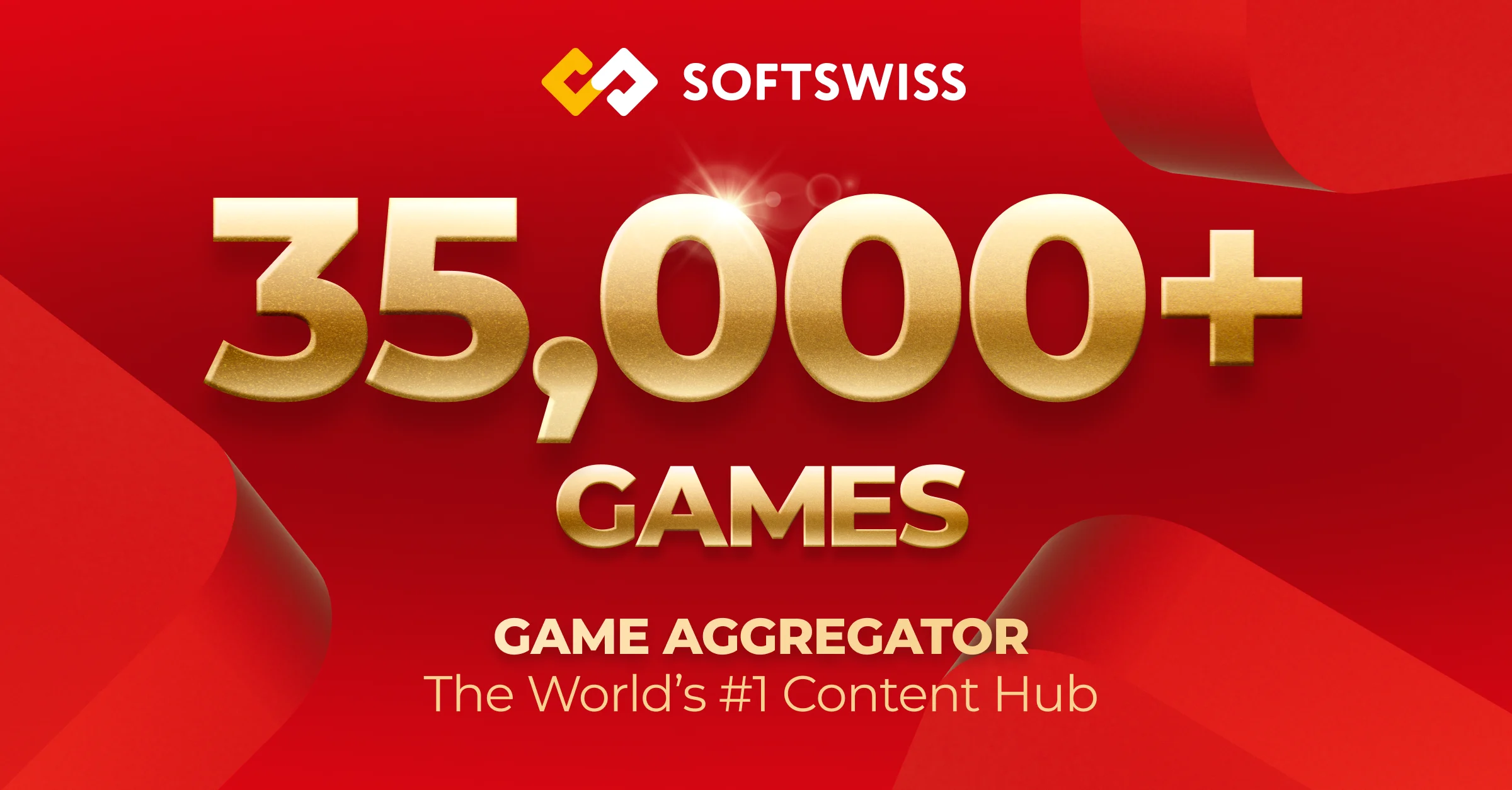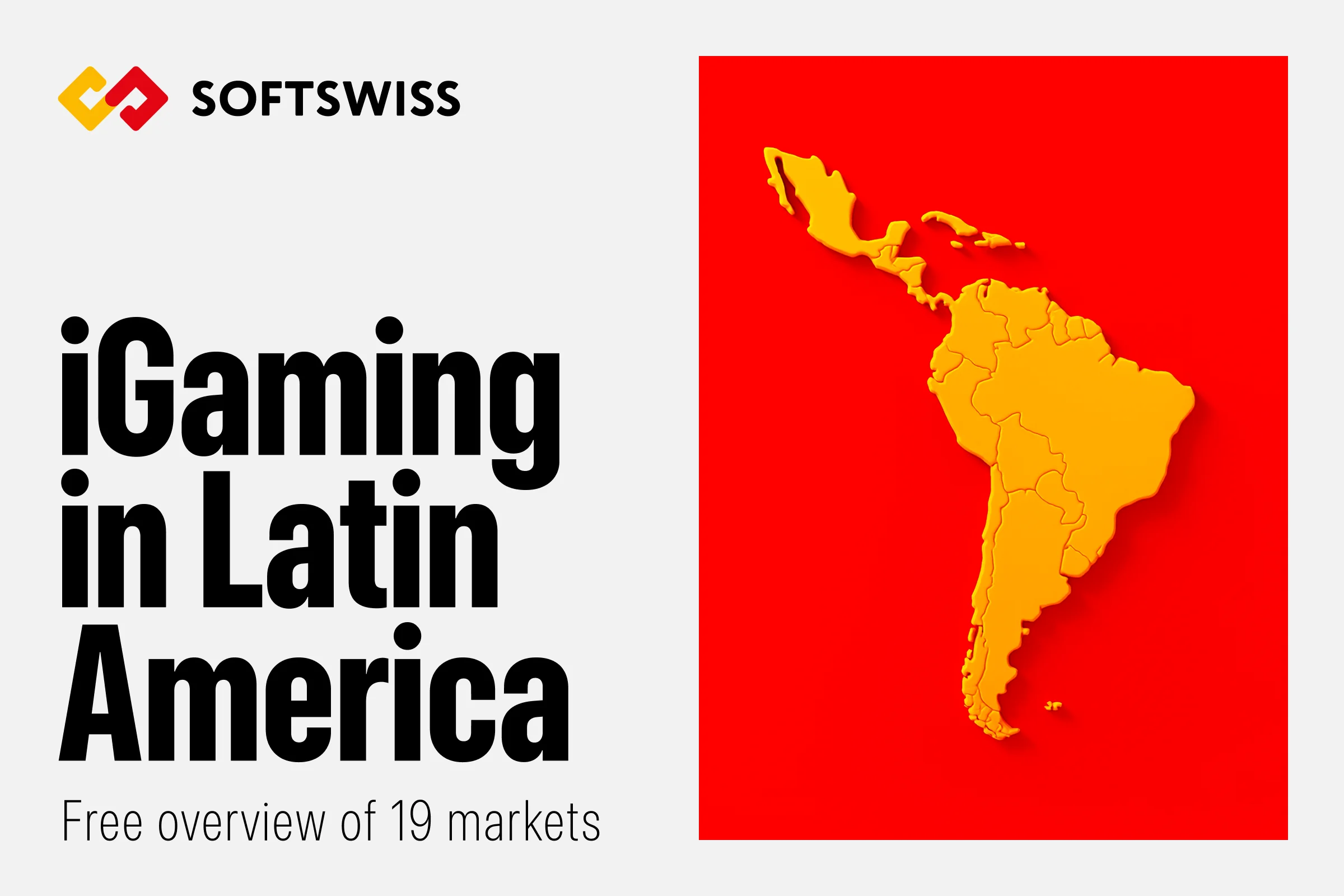Emerging markets will dominate the iGaming conversation throughout 2024, and the Latin American market is home to multiple new opportunities. Keep reading for an overview of regulations and revenues from Mexico to Brazil and get an idea of the region’s tremendous potential and most important gambling news.
Latin America is a land of promise for the iGaming industry. Markets that have already chosen to regulate online casinos and sportsbooks are seeing stable growth in the sector, and countries with favorable regulations on the horizon are anticipating astonishing levels of growth in the near future.
The regulatory status of online gambling varies across the continent. Some countries, such as Ecuador and Brazil, currently prohibit all forms of gambling – with an understanding that online gambling is included – except for state lotteries. In other countries, while it is not officially regulated, it is not actively prohibited either.
Bolivia and Nicaragua, cover online gambling in their overall regulatory framework for the gambling industry as a whole. In Argentina, online gambling is regulated on a province-by-province basis.
Bolivia, Mexico, and Brazil are all among the nations considering or actively pursuing reforms to their online gambling laws. The latter two countries currently have proposed legislation under consideration. Colombia, meanwhile, has been updating its regulatory framework to better embrace the digital age.
Brazil is often called the sleeping giant of Latin America, but several other markets present iGaming operators with opportunities worth serious consideration. Below, we offer a country-by-country rundown of the South American online gambling market as we enter 2021.
Argentina
With a population of nearly 45 million, Argentina is Latin America’s fourth-largest country and second-biggest economy. Gambling is regulated on a province-by-province basis, with operators only allowed to offer their services to residents of their province. In those that choose to regulate, operators are allowed to offer virtually all forms of gambling.
The country’s online gaming and betting sector is estimated to generate $2.4 billion in annual revenues. In an effort to bounce back from the crisis of 2020, the government recently announced that the federal tax on online gambling would increase from 2% to 5%. This is separate from provincial and city taxes; the province of Buenos Aires taxes operators 25% of their gross gaming revenue. In the city of Buenos Aires, the tax is 10% on GGR.
The country also regulates gambling advertising. Advertisements may not feature or target minors, and may not be deceitful or misleading. Only authorized operators may advertise their services in the country.
The IPLyC – the regulatory authority for the province of Buenos Aires – began 2021 by launching its licensing regime with a series of partnerships between domestic companies and foreign operators such as William Hill, Bet365, and 888 Holdings.
Brazil
Brazil, Latin America’s largest and most populous country, is often referred to as a sleeping giant – one that’s long overdue to wake up. At the moment, most forms of gambling are prohibited, but a special commission was formed in 2016 to develop regulations for the sports betting sector. Gambling legislation was ultimately passed in 2018, but the implementation of the scheme has been delayed.
The legislative process involved public consultations that brought in nearly 2000 suggestions from 600 gaming companies. Ultimately, sports betting is set to be privatized, lotteries will be run by the state governments, and jockey clubs will continue to offer horserace betting. The highly anticipated new regulations are set to come into force by the middle of 2021.
Once the new regulations come into effect, Brazil will have the continent’s largest land-based and online sports betting market. With a population of over 200 million (an estimated 63% of whom have access to mobile technology) and a nationwide passion for sports – particularly football – Brazil is a dream come true for sportsbook operators who want to expand into South America.
The sportsbook licensing fee has been set at R$3 million ($560,000), with a R$20,000 ($3700) monthly fee for land-based retail shop operators. Sportsbooks that exclusively operate online will pay a monthly fee of R$30,000 ($5600), and those operating both retail and online will pay R$45,000 ($8400).
The entire iGaming industry has been keeping a close eye on the situation in Brazil – and for good reason; within five years of becoming regulated, the country’s sports betting market is expected to be worth over $1 billion.
Chile
Chile’s Ministry of Finance recently announced that a bill to regulate online gambling would be introduced to the Chilean congress in the first half of 2021. Current regulations prohibit even the country’s licensed land-based casinos from offering their services online. The planned regulations would allow both casino gaming and sports betting in an effort to increase tax revenues and ensure player safety.
In 2020, regulators announced that the merit of renewal applications would be judged based on financial valuation, instead of a company’s current licensing status. This would mean that new licenses would be awarded through a tender process, instead of allowing license holders to renew their license by satisfying a series of requirements and paying a fee. The changes were met with disapproval by a group of foreign investors with ties to the Chilean casino industry and caused the Chilean Casino Association to break off negotiations with regulators in September 2020.
If the bill to regulate online gambling passes, Chile will become the latest Latin American to open up to operators.
Colombia
Colombia is one of the biggest markets on the continent. With a population of over 50 million, the fourth-biggest economy on the continent, a mobile penetration rate of roughly 56%, and a well-documented national passion for football, Colombia presents a massive opportunity for online gambling businesses – especially operators offering to make sporting bets online.
Colombia became the first country in Latin America to regulate online gambling in 2016, and the gaming and betting market has been growing steadily since licensing began in 2017. With the 2016 regulation of the online sector, almost all forms of gambling, both land-based and online, are now legal in the country – with the exception of online betting at horse racing; only Coljuegos, the country’s regulatory body, and private operations with government concessions may operate trackside betting.
The industry is posting some breathtaking statistics as it continues to grow. Gaming and betting contributions to the national treasury rose to $19.6 million in 2019, a 106% increase from the previous year. The market’s total NGR (net gaming revenue) was predicted to reach $200 million in 2020.
For now, much of the country’s betting activity is centered around traditional brick-and-mortar retail betting shops, but like in many other markets, online betting is quickly catching up. While sports betting – especially football betting – draws the bulk of Colombian bettors’ attention, other games of chance like slots and lotteries are also highly popular.
Gambling tax is set at 15% of gross gaming revenue, and online gambling operators are also required to pay an annual fee of 811 times the monthly minimum wage in Colombia (approximately $175,500,175).
Costa Rica
As an economically and politically stable country, Costa Rica is an attractive base for a number of international industries including the iGaming sector. While laws from 1922 and 1974 prohibit games where chance is a deciding factor in the outcome, the government’s unspoken approval has turned the country into a hub for the online gambling industry.
Authorities permit gambling companies to be established in the country provided they follow Costa Rican law, which prohibits them from offering gambling services to Costa Rican citizens. They can, however, accept players from other jurisdictions.
The government’s tolerance of gambling enterprises and lack of a tax on internet gambling revenues has made the country highly attractive for online casino operators; an estimated 450 companies related to the iGaming industry operate out of Costa Rica.
There is no official gambling license issued by regulators; instead, online casino operators apply for a “data processing” license and are frequently classified as call centers. Additionally, Costa Rican banks do not process transactions for online gambling operators located within the country’s borders.
The Dominican Republic
The casino industry in the Dominican Republic developed along with the tourism industry throughout the second half of the twentieth century, as the government aimed to diversify the country’s economy. The 1960s and ’70s saw the legalization of gambling and tax breaks for private companies that invested in tourism, including casinos.
All forms of gambling are regulated in the Dominican Republic, except for fantasy (dfs) and virtual sports betting, which are neither specifically regulated nor prohibited. Online gambling licenses cost roughly $230,000, with operators obligated to pay an additional $23,000 in administrative fees.
The Dominican Republic enforces a 10% turnover tax. Operators must also provide the National Directorate of Casinos and Games of Chance a tariff of RD$1 for each RD$100 they process, as well as investing an additional RD$2 for each RD$100 processed for providing technological equipment to the directorate. Operators are also required to withhold 25% of players’ winnings and direct the proceeds to the national treasury.
Ecuador
Land-based casinos and bingo halls were forced to close in 2012. Online gambling, similarly, is prohibited. However, in 2019, a group calling itself the Association of Former Casino Workers of Ecuador began calling for a reversal of the prohibition. The group’s leader claimed that Ecuadorian citizens simply traveled to neighboring Peru and Colombia to gamble, bringing with them an estimated $45 million in potential revenue, and casinos should be reopened. However, no legislation for the re-regulation of the sector has been considered yet.
Guyana
Guyana’s Gambling Prevention Act prohibits gambling, but there are a number of exceptions, such as lotteries and pool betting. Casino gaming became legal in 2007 as part of a push to stimulate the country’s tourism sector. As of yet, only two casinos have opened, and only guests of the attached hotel are permitted to play.
There are no laws explicitly prohibiting online gambling in Guyana. The country’s Gambling Prevention Act specifically bans gambling in common gambling houses, a requirement that remote gambling does not fulfill. However, in 2013 the government revoked gambling licenses held by remote gambling companies.
Mexico
With over 120 million people, a mobile penetration rate estimated around 60%, and the second-strongest economy in Latin America, Mexico is widely considered to be fertile ground for new and expanding online casino and sportsbook operators.
Nearly all forms of gambling are explicitly regulated in Mexico except for land-based card rooms (poker games are only permitted in casinos) and fantasy sports (which are permitted, but not expressly regulated). Like the rest of Latin America, all games of chance are popular throughout the country, with bettors showing an added level of enthusiasm when it comes to betting on football, which is on the list of the most popular sports in the world.
The main piece of legislation governing gambling in Mexico is the Federal Gaming and Raffles Law of 1947. Full regulations came into effect (after much debate) in 2004. While most forms of gambling are technically prohibited, various interpretations of the country’s regulatory framework have created room for a flourishing gaming sector.
Online casino and sportsbook operators don’t require an additional license, only authorization and a partnership with a land-based license holder. However, the country could stand to benefit if the regulatory authority, the Directorate General of Games and Raffles, were to loosen requirements and issue more licenses; the online gaming and betting sector’s revenues are estimated to be up to $450 million, with only $50 million of that coming from authorized operators.
Nicaragua
Aside from racing, fantasy sports, and betting on virtual products, all forms of gambling – both land-based and online – are regulated in Nicaragua. The regulatory authority is split between the Control Board of Casinos and Gaming Venues and the Ministry of Finance and Public Credit. Though land-based and online gambling were legalized in 2001, the industry remains largely underdeveloped.
Panama
Almost all forms of gambling are regulated in Panama. Online gambling is subject to local licensing, and operators can offer sports betting, auto race betting, and a full range of casino games. Some products, however, are prohibited; the list includes lottery games, betting on horse races, amateur events, political elections, and other events, at the regulator’s discretion.
Licenses cost approximately $49,900. Applicants must have a legal representative in Panama, comply with all rules and regulations, submit to a background check, and be established in the country. Online gambling is taxed 10% of Gross Gaming Revenue. Gambling in Panama is regulated by the country’s Gaming Control Board.
Regulatory changes announced in September 2020 made Panama one of the few countries in Latin America with a fully licensed online gambling market. Previously, licensees had been barred from offering their services to Panamanian citizens, but now operators will be allowed up to five “.pa” domains. Regulators anticipate licensing between 10 and 15 operations.
Paraguay
Almost all forms of gambling are legal in Paraguay. Paraguay’s sole licensed sports betting operator brings in roughly $4 million in taxes annually. In 2016, the government drafted a bill that would update some of the country’s gambling legislation, in particular when it comes to online gambling. Tax reforms in 2021 are anticipated to include new gambling taxes.
Peru
Peru regulates casinos and various slot machines, but not lotteries, races, or sports betting. Online gambling is also unregulated, meaning that while authorities do not issue licenses, they also do not prohibit operators from offering online casino games or sports betting. The government has also announced an intention to regulate the online gambling sector.
The only organizations which are formally permitted to offer online gambling services are Intralot Peru and Corporacion Galena, which operate lottery games for social institutions, and the Monterrico racetrack.
Technical and player identification standards are not laid out in current regulations. There is no set taxation scheme but formally recognized online betting services pay a 20% tax on GGR. The mobile penetration rate in Peru lags behind many other countries in Latin America, with only 42% of Peruvians estimated to have smartphones.
While the land-based casino gaming and sports betting sectors are well-established, the online sector is growing and presents a tempting opportunity for iGaming operators.
Uruguay
Most forms of gambling are legal in Uruguay, but the country lacks an overall cohesive legal framework. Instead, operators are regulated on a case-by-case basis according to the terms of individual concession contracts.
The government tightly controls the gambling sector, but over the past decade and a half has allowed more room for private operators to get involved. Most casinos are operated under a government monopoly, but some have private investors involved.
A 2018 law gave sole authority to operate online gambling enterprises to the Direccion Nacional de Loterias y Quinielas (National Directorate of Lotteries and Pools). Outside of lotteries and sports betting offered by DNLQ, online gambling is prohibited. However, there is an exception; online gambling operators may establish a legal presence in the Montevideo Free Trade Zone as long as they do not offer their services to citizens of Uruguay.
Venezuela
Casinos and bingo halls were banned in Venezuela in 2011. In 2019, the government approved a cryptocurrency casino in an effort to boost the value of the country’s Petro cryptocurrency.
Read more: Best iGaming Aggregators












